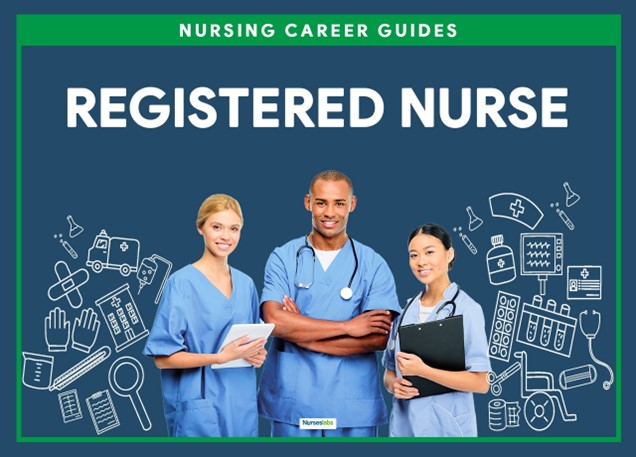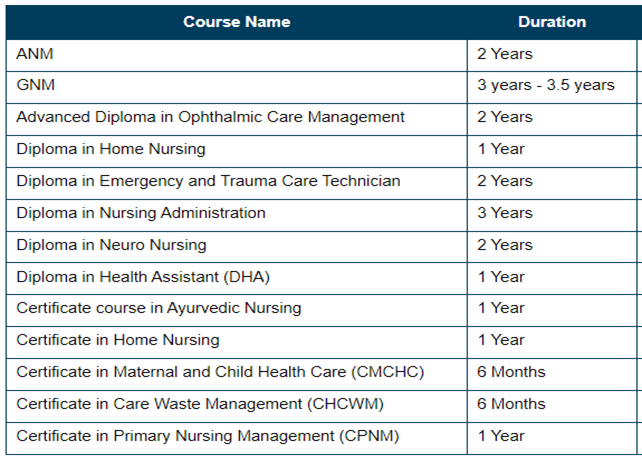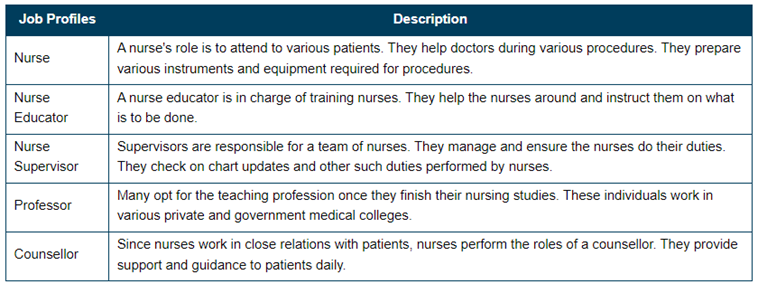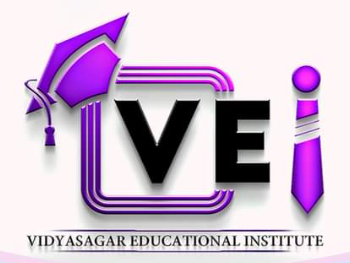Nursing is involved in almost every field of healthcare, and nursing practitioners have a significant impact on it. They are an important link in the process of connecting patients to doctors. doctors do not do all the duties; nurses are responsible for pre-and post-operation operations They are also an asset to the medical profession in the form of assisting physicians in a number of procedures and procedures. They keep an eye on charts and stay on top of treatments.

Nursing is a crucial part of medical science offering a wider scope of knowledge to help nursing professionals grow and evolve. Considering that healthcare is a fundamental need that has remained so through the ages, the world of nursing forms the foundation of this entire healthcare industry. Nursing students have different course options to choose from. Students of diploma and postgraduate studies have several options, starting with the diploma programs and continuing on to the postgraduate programs. Nursing is one of the most common occupations people decide to choose. This is an excellent opportunity for individuals to work with the health sector while serving the needs of those in need. Practically speaking, nursing students are provided with sufficient instruction during their schooling. They have been trained to work with highly challenging and risky situations.

Types of Nursing Courses
In India, there are primarily three types of nursing courses, which are mentioned below.
- Certificate Nursing Programs: Nursing certificate programs are often delivered at the undergraduate level. Their lifespan can range from six months and a year
- Diploma Nursing Courses: Diploma nursing courses, including degree courses, are available at both the undergraduate and graduate levels. Their length usually ranges from one year to three and a half years
- Degree Nursing Courses: Nursing degree courses are available at both the undergraduate and graduate levels. The length of these courses usually ranges from two to four years.

Eligibility Criteria for Nursing
Eligibility for Nursing Undergraduates
To some degree, the qualifying requirements for nursing students remain simple. Most colleges list the following criteria:
- The pupil may have completed their class 10 and 12 from a recognized board or institute
- At the class 12 level, they should have received a minimum of 50 per cent.
- Students should be from a scientific background. Biology, chemistry, physics, and mathematics should have been their main subjects.

For Nursing Postgraduates Course
Below are the qualifying requirements that universities consider when making admissions decisions:
- Applicants may have completed class 10 and class 12 from a recognized institution
- At the class 12 level, the student can achieve a minimum of 50 percent
- A medical degree should be obtained by the student. They should get a bachelor's degree in science.
- At the undergraduate level, the student must have a grade point average of 55 percent or above.
- The majority of admissions decisions are made based on entrance tests. As a result, students should concentrate on getting successful grades on these tests.
Here are some of the most basic standards that colleges have. Before applying for classes, students can review the college's notices.

Scope of Nursing in India and Abroad
Nursing is a well-established profession in India. Many students from all over India apply for nursing jobs. Nursing has a high level of involvement in India because the sector of healthcare is in high demand and prominence. In a hospital, nurses have a variety of responsibilities and functions. They are available to patients 24 hours a day, seven days a week. They are the healthcare industry's backbone.
Nurses are working in a variety of settings in India, including hospitals, health centers, and holistic healing centers. Few people pay nurses to attend to a patient's daily health needs in their homes. Nurses are in high demand throughout the world.

If nurses stopped working, the healthcare industry would collapse. The whole sector is reliant on the Nursing community.
Nurses are in high demand even outside of the hospital. Nurses are in high demand in every country with a well-established healthcare sector. Nurses are working to care for people at the primary level and everybody requires healthcare.
They support patients during their stay in the hospital by preparing them for treatments and assisting them. They attend to the patient's wishes and provide them with the medications they need.
Nurses will continue to be in high demand. Even though millions of people are enrolling in nursing programs around the world, there is already a shortage of nurses. Because of the increased demand, nurses will be paying better and at even higher prices in the coming years.

Nursing Course Fees & Duration
Undergraduate Degree Courses in Nursing Here is a list of UG degree courses offered in Nursing.

Undergraduate Certificate or Diploma Courses in Nursing
A list of Nursing Certificate or Diploma courses at the UG level is given below. Have a look.

Careers in Nursing
A nursing student's only choice is not to become a nurse. Many nursing students already finish their higher education and specialize in the medical profession. As a result, their demand and job rates rise.
Nurses are often offered the opportunity to become administrators and managers in a variety of hospitals. They even teach; since our country has so many medical institutes, they have a good chance of finding work. Research is another option to consider.

Nursing Future Trends
Nursing will be in higher demand in the coming years. Since there are a lot of people enrolling to be doctors and surgeons, the number of nursing students would drop. Nurses will be in higher demand as a result of this. Nurses' earnings are steadily rising. Policies will be put in place to ensure that nurses have fair working hours and pay. Nurses will serve set hours and will not be required to work overtime. They will then continue to receive job incentives. Nurses with specific specializations will become more prevalent over time. Nursing students may be required to do further research. They will also need to specialize if they want to work. Such changes and patterns are to be predicted. In a nutshell, interest in this area will rise, but students will most likely enrol in other medicine courses.
Job Profiles and Top Recruiters
Here are a few opportunities that are available for nursing students:

Nursing FAQs
Q: Is it possible for me to become a nurse if I studied arts in class 12?
A: Yes you can pursue ANM and GNM diploma courses in Nursing after passing the class 12 exam from any stream. For BSc Nursing, candidates are required to have extensive knowledge of Biology, chemistry, and physics.
Q: What are the subjects included in the Nursing entrance exams?
A: The entrance test is primarily based on the student's experience from grades 10 and 12. The test covers topics such as biology, chemistry, and physics.
Q: What types of courses are available in the area of nursing?
A: Nursing diploma courses are available to students. They could delve deeply into the subject through undergraduate and postgraduate programs. Many interested in furthering their education could pursue a doctorate in the field.


